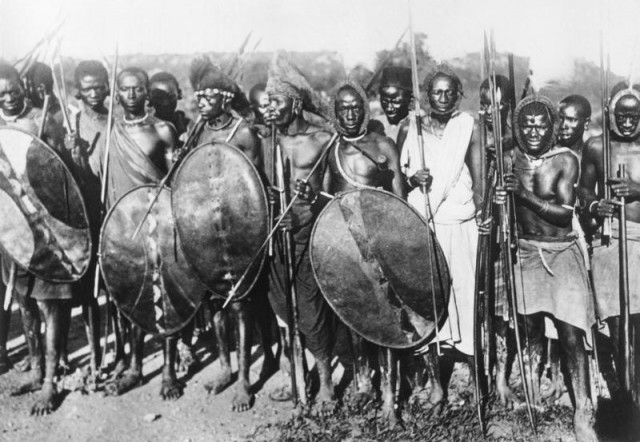Maji Maji
Between 1905 and 1907 several small ethnic groups from Tanganyika (present-day TANZANIA) rebelled against German colonial authorities in an uprising known as the Maji Maji Rebellion. Although unsuccessful, the rebellion was one of the most important events in the history of East Africa.
The Maji Maji Rebellion was centered in the southern highlands of German East Africa, a colonial territory that included Tanganyika and present-day RWANDA and BURUNDI. During the uprising, 20 small groups united in opposition to German rule, though they often quarreled among themselves. The groups resented German attempts to force them to grow cotton, pay high taxes, and provide labor for colonists. They also objected to the replacement of indigenous local leaders with colonial administrators.

The name of the rebellion came from the Swahili word for water, maji. In 1902 a healer named Kinjikitile became the guardian of a pool believed to have magical powers. Kinjikitile declared that the people of the region should join together to fight the Germans and that drinking the pool's water would make them immune to German bullets. People also came to believe that drinking the water would cause them to form spiritual bonds with the other groups involved in the struggle. During a drought in 1904, people came from throughout the area to the magical pool to ask for rain, and Kinjikitile's message spread widely. The first attacks against the Germans came in July 1905. The next month Kinjikitile and one of his assistants were seized and hanged by the Germans. After their deaths, the uprising spread and became more serious. The Germans finally defeated the rebels in 1907. Today the uprising is remembered as a symbol of the common purpose and identity of the people of Tanzania. (See also Colonialism in Africa, Prophetic Movements.)